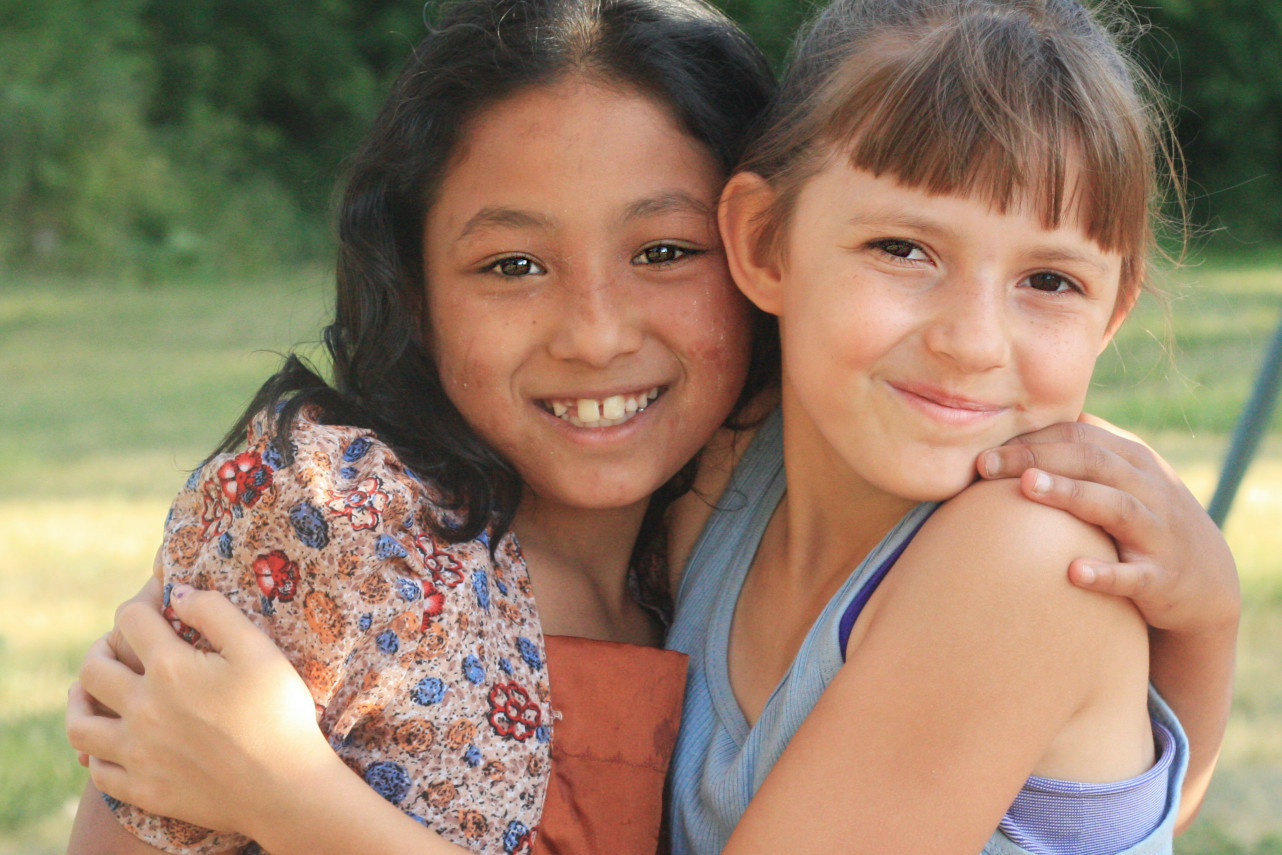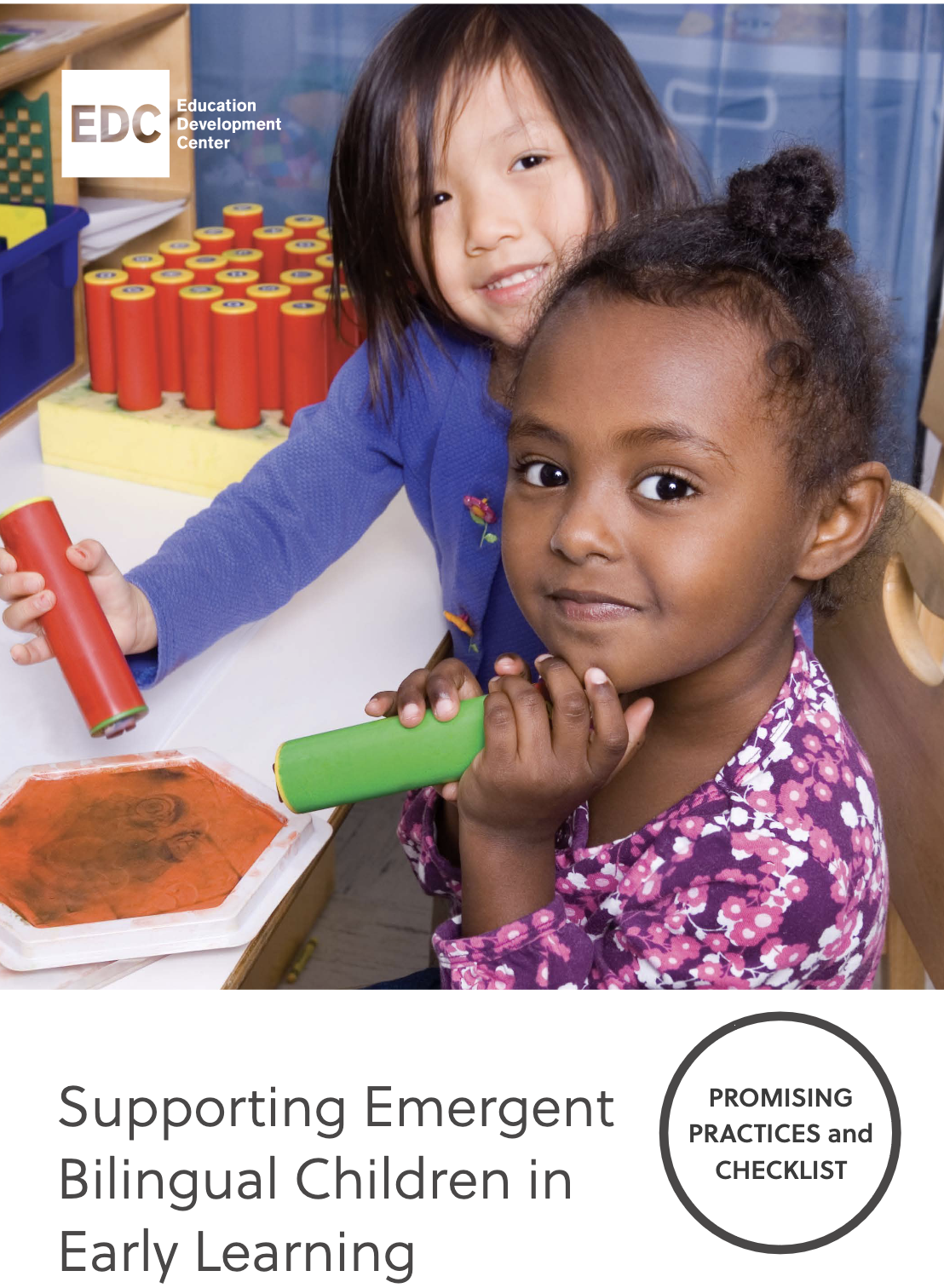 Our children receive messages about race all the time – from books, games, movies, television, teachers, family friends and family members, neighbors and neighborhoods, their peers, and from you. They learn from what you say and do, from what you don’t say and don’t do. As adults in the lives of children, we play a crucial role in shaping how and what they learn about race.
Our children receive messages about race all the time – from books, games, movies, television, teachers, family friends and family members, neighbors and neighborhoods, their peers, and from you. They learn from what you say and do, from what you don’t say and don’t do. As adults in the lives of children, we play a crucial role in shaping how and what they learn about race.
This downloadable action guide from EmbraceRace offers recommendations for raising children who can be thoughtful, informed and brave about race. Selected tips follow:
Start early. The earlier, the better.
Understand that children notice difference.
Within months of birth, infants prefer same-race faces. Babies can distinguish skin colors and hair textures. This doesn’t mean that they think about race the way adults do or that they’re “racist.” It means that they have begun to participate in the ongoing conversation about race. Be sure to involve yourself thoughtfully in that conversation!
Make space for your child’s respectful curiosity.
Let your child know that it’s okay to notice skin color and talk about race, whether with respect to toys, characters in books, or in the world. Encourage her to share thoughts, feelings, and experiences by asking questions of her and welcoming her questions. If she makes a negative racial comment, ask, nonjudgmentally, What makes you say that?
Let your child see you do your own work.
Let your child see you face your own biases.
We’re less likely to pass on biases we identify explicitly and work to overcome deliberately. Give your child an example of a bias, racial or otherwise, that you hold or have held. Share with your child things you did or do to confront and overcome that bias.
Acknowledge when you don’t have a good answer, but don’t leave it there!
You don’t have to be an expert to talk with a child about race and related topics. If you don’t have a good answer to a question, say, Let me think about that for a while or Good question! Let’s find out more about that later, okay? And then do the research!
Learn about others and about yourself.
Choose diversity.
Choose a diverse neighborhood to live in. Choose a diverse school for your child. Be sure the books, toys, and movies in your child’s life include some with Black, Indigenous characters and people of color in lead roles. Diversify your circle of friends and help your child diversify his. Helping your child build real relationships with a racially diverse set of children and others will probably take some effort. It’s worth it!
Learn about and respect others.
Talk about and study the experiences of groups we now call Black people or African Americans, Latinos, Asian Americans, Native Peoples, and Whites, among others. Be sure your child understands that every racial and ethnic group includes people who believe different things and behave in different ways. There is more diversity within groups than across them.
Raise a changemaker.
Nurture critical race thinking.
Media portrayals of racial groups might be especially influential in shaping the perceptions of children with little direct contact with the people in them. Teach your child to question the narrative offered in books, movies, and on television. Ask: Whose story is this? Whose voice is missing or sidelined? Who gets to be the hero? Who created this story and when?
Support your children to take a stand.
Be sure your child knows that the struggle for racial fairness is ongoing and that your family can take part in it. Help her understand what it means to be, and how to be, a change agent. Connect the conversations you have to the change you both want to see, and to ways to bring about that change.
Excerpted from “16 Ways to Help Children Become Thoughtful, Informed, and BRAVE About Race” from EmbraceRace. Read the full text of the action guide online. Download a PDF of this action guide.
Source: EmbraceRace | 16 Ways to Help Children Become Thoughtful, Informed, and BRAVE About Race, https://www.embracerace.org/resources/16-ways-to-help-children-become-thoughtful-informed-and-brave-about-race | EmbraceRace © 2021
Do you need someone to talk to? To schedule an evaluation or to get advice about your child’s challenges, call or email a CHC Care Coordinator at 650.688.3625 or careteam@testing.chconline.org CHC teletherapy services are available now.
This resource is filed under:





